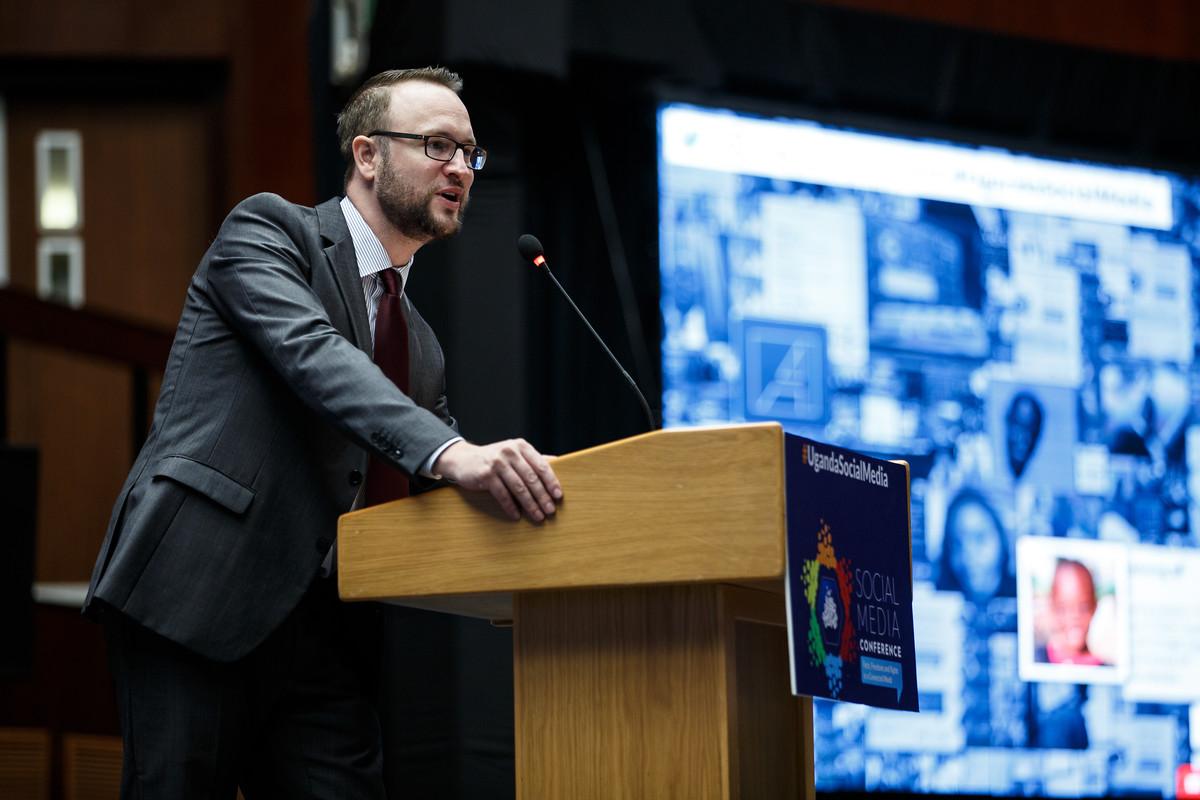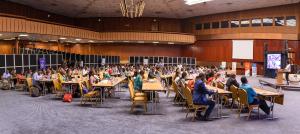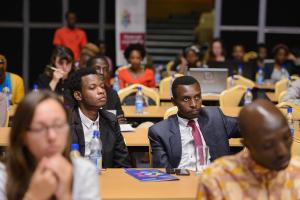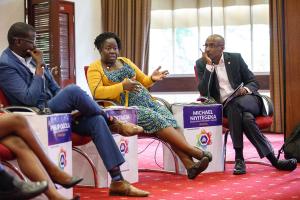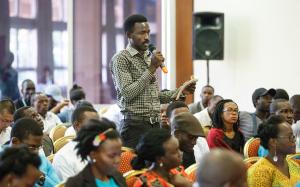These and among others were the questions explored at the third
annual Social media conference we organised in partnership with NBS Tv. The one day
conference was delivered in different formats such as plenary session, small group
discussions as well as speakers corners provided an in-depth analysis of the social media
trends especially as a source of information at the same time focusing on the rights and
freedom of the users.
The discussion revisited the role of social media especially as a tool that is transforming
journalism and circulation of information.
Access to information has gone through a revolution over time. This has kept changing with
change in technology. This has created a revolution in the field of journalism, fist, news can
reach the public faster than usual. Secondary, there are many more journalists as there are
people with access to social media. The new developments are changing how the public
perceive social media, from a platform of chatting with friends and for posting personal
updates to a tool that has come to challenge and facilitate how the traditional media houses
operate. We receive breaking news faster than we used too. We can know what to expect
from a news bulletin on social media. And we see the traditional media houses incorporating
social media channels in their circulation platforms for the news and all kinds of information
to the public. Social media has become more and more instrumental in our daily access to
information.
With the changing time where people are somewhat busy to watch TVs, social media has
been handy at facilitating the transmission of information to the people through short videos
as well as instant massages. As a result, all most all traditional media houses have social
media channels through which their clients can get breaking stories or visit to catch up with
what they missed while they could not access their TV sets or radios. More applications are
being developed to facilitate the transmission of information to the public away from the
traditional channels. As people become more and more mobile and busy, the lesser they can
afford time to sit down to what Tvs or listen to a radio. But social media is here to guarantee
that they do not miss out of the news and other kinds of information, they can always access
it from wherever they could be.
Covering warzones is quite a challenge to the journalist, many have lost their lives in trying
to get news and information to the public. As such, media houses have considered reducing
human presence in the battle field a space which is getting filled by citizen reporters. Media
house are relying on citizens who are becoming more effective on reporting what takes place
around then. The multiplicity of social media applications as well as the incorporation of the
social media by the traditional media houses is facilitating this trend. Social media has
transformed the entire media fraternity by creating quick access to breaking news, many
voices and getting first-hand information from the witnesses.
Nevertheless, social media remains with some challenges especially issues of trust for its
information. In many cases, false information has circulated on social media which has pulled
down credibility of the channel in giving news and information to the public. In such cases, it
has been the role of the traditional media houses to verifying many of the stories. While as
access to internets has increased significantly over the years in many developing countries,
many places remain with limited or no access to internet at all. This in turn has limited access
to social media in such places. While for some cases, the cost of internet remains as high. As
a result, rationing of the time people access social media and hence compromising their
presence and effectiveness of their communications on social media. Cyber bulling including
mean messages, embarrassing pictures, gender sensitive massages and false rumours are a
common practice on social media. Women in particular have been victim of cyber bulling,
the Rwanda case being one of the recent scenario in this case. A female presidential hopeful
who had come out to challenge President Kagame for the presidential seat woke up to her
nude pictures trending on social media. Some wrong elements such as the terrorist groups,
fraud stars continue to use social media for recruitment and trap their victims respectively.
This and many more incidence have been pointed out as the dangers of unregulated social
media. These among other challenges have made part of the public to down play the
relevance of social media in facilitating access to information.
It is therefore, evident that social media cannot continue to be seen as a mere chatting
platforms or avenues of sharing personal updates to rather an important and yet effectives
channels of information and news sharing. This therefore, calls for efforts to secure freedom
and rights of those who use social medial to communicate, carry out their business as well as
those who continue to use it for social interactions.
The social media users need a guarantee that they can continuously use these channels to get
and share information and news around the global. As such governments need to be part of
the users of social media channels such that they can interact with the public on these
platforms but also will be an assurance that they too will be affected in case these channels
are blocked. Uganda is one of the good examples, during the 2016 general elections when
social media was switch off for three day, the cry was had from many citizens.
The youth remains the most active segment of the population on social media. falling in to all
categories of social media users both constructive users and deconstructive. But we realise
how social media has increased space for political activism especially by the youth who have
for long lacked a platform to express their opinions. They can criticize the evil in their
society, present their demands and mobilise and advocate for their rights and freedom. With
many young people expressing their views and opinion on social media, it’s also incumbent
upon the government to engage them on the very channels to avoid miss information and
build-up of anger among the youth.
Even though there are vivid reasons to call for the regulation of social media. the
implementation and later alone the enforcement of such regulations would be excessively
expensive and problematic. It is upon individual to perform their part by being proactive and
reporting fake news as well as being more selective about the content and source of the
information they share. As such, the public need to become more civil and sensitised on what
amounts to abuse of the platform. Secondary, they need to be aware of how to protect
themselves from the bad elements who use social media for their bad intentions. Parents on
the other hand were challenged t6o be more keen on how their children use the internet and
social media channels.



